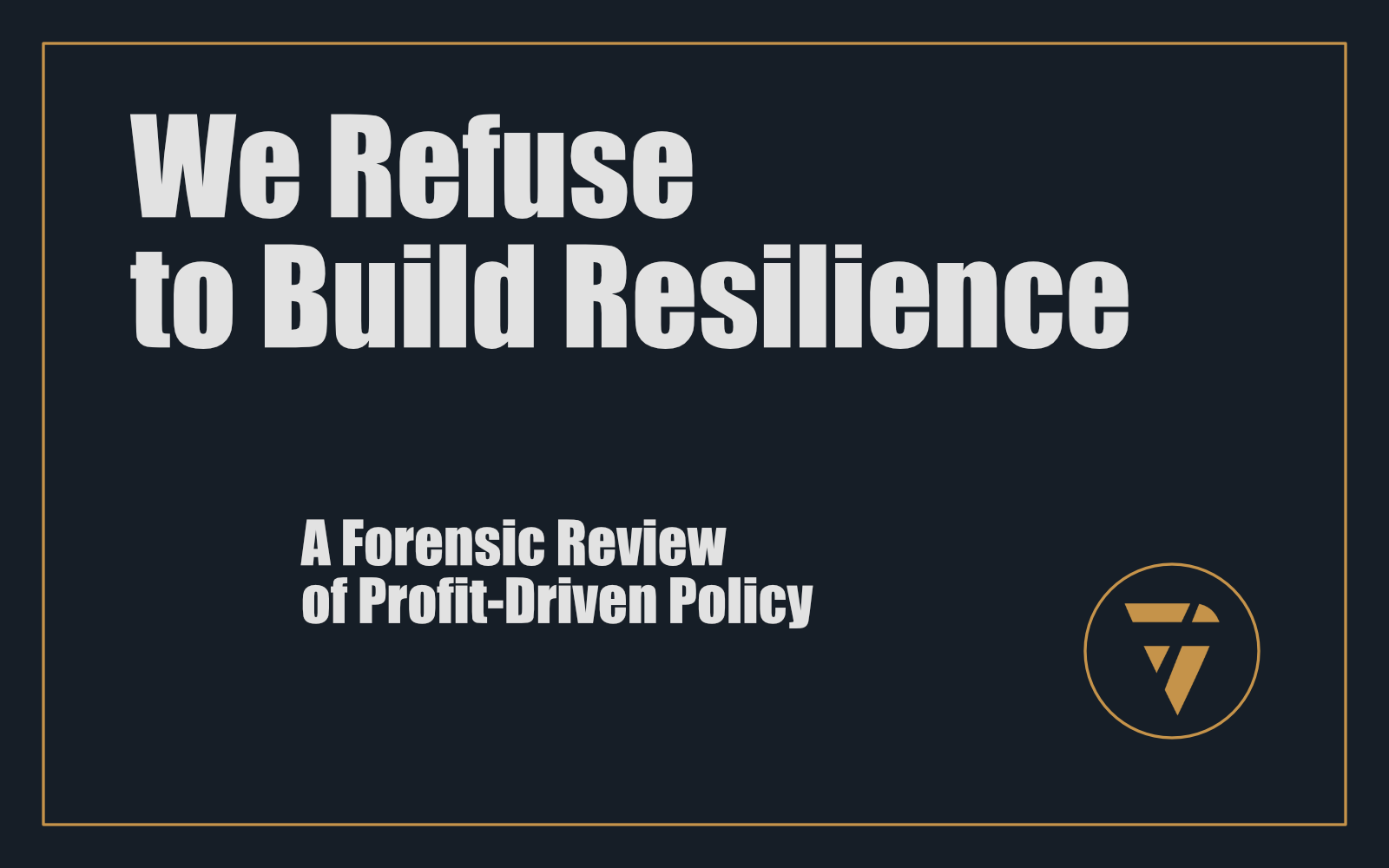We Refuse to Build Resilience

A Forensic Review of Profit-Driven Policy
We’ve systematically engineered fragility into every new home.
Cheap, code-minimum, disposable.
Built to Sell, Not to Shelter
Every modern housing subdivision follows the same playbook:
- Land speculation over site resilience
- Standardised floorplans worth no place-specific value
- Code-minimum envelopes—thick enough to pass but thin enough to save
- No viability testing for crises
Profit trumps protection. Homes are produced like widgets: no differentiation, no durability. And survivors don’t count in pro forma statements.
The Economics of Ignoring Death
Our financial system treats homes like commodities. Impact is invisible. Externalities don’t register:
- Deaths during heat events: unpriced
- Increased healthcare costs: not on builder’s ledger
- Migration pressures: erased in resale
- Service burdens on municipalities: passed to taxpayers
Until code reflects true cost, resilience will never win in the market.
Regulatory Inertia — Systems That Freeze
Housing regulations move slower than climate. The process:
- Lobbyists propose changes
- Committee members cite cost impacts
- Studies delay decisions for years
- Code changes pass—often reduced before implementation
- Municipalities enforce the bare minimum
Meanwhile, heatwaves intensify, power grids destabilise, people die.
You can legislate everything but survival. It's not lack of evidence; it's lack of will.
The Cost Argument—A Lie We Pay For
We hear it daily:
- “It costs 5–10% more to build airtight.”
- “Home buyers aren’t willing to pay for resilience.”
- “It lengthens construction timelines.”
All maybe true. But the trade-off?
- Lives lost
- Bills for ambulance and hospital after the fact
- Climate refugees moving because their homes killed them
- Infrastructure cost to support failed housing
And these costs are real. But they don’t appear on a developer’s spreadsheet. And that’s exactly why resilience remains optional.
The Outcome: Suburbia That Fails
So what do we end up with?
- Heat-vulnerable homes
- No testing for survivability
- Insulation and glazing that can’t buffer one crisis wave
- Dependence on centralized HVAC and unstable power
All built to code. All built to sell. All built to fail.
The Moral Assignment
This isn’t a systems error. It’s a systems design.
- Builders know airtight homes are safer
- Engineers know about passive survivability
- Passive House designs were proven decades ago
Yet none of it is mandatory. Not because it’s impossible, but because change is inconvenient.
What Must Change
We need:
- Mandatory passive survivability certification—every new home must pass a 48-hour no-power, heatwave test
- Value externalities—financial incentives, insurance benefits, carbon accounting
- Hold builders accountable—builder liability when homes fail basic resilience
- Upgrade the code—we’re already decades behind the climate shift
We don't need to invent. We need to apply. At scale. Nationwide.
Conclusions & What’s Next
Every home built under current conditions weakens our collective capacity to survive the next crisis. And make no mistake—housing failure will be this century’s public health emergency.
We can’t keep building homes that serve the economy and kill the residents.
This is what I’m working on. Tell me what you think, I enjoy the conversation! Subscribe and follow the work in real time.
Thanks!
B

Every new house should have to survive 48hrs in a blackout during a heatwave.
That’s the test. That’s the standard.
If it fails—people die.
Right now, we build to sell. Not to survive.
And it’s deliberate.
PS -






